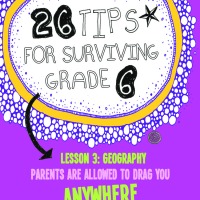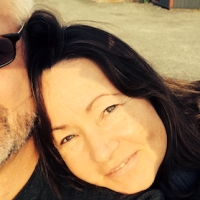Catherine Austen
Creative Writing
He Said/She Sighed Part 2
I grabbed twenty books from the living room shelf, opened each to a random page, and checked out all the verbs used in dialogue. And here is what I learned:
Almost all the authors used a simple “said” at least half the time. But none of them used said all the time. None. Not one.
Okay, it’s not a statistically meaningful survey but, even if the dice are loaded by my taste in books, the verbs are there on esteemed pages, defying trendy writing advice.
Here is a typical page of dialogue verbs from my not-quite-random survey:
Graham Greene, Brighton Rock, page 80:
“Ida said”
“she said”
“Ida said”
“Mr. Corkery asked”
“Mr. Corkery implored”
“Ida said”
“Mr Corkery sounded her”
I don’t know what that last one means – “sounded” must be a British thing — but the gist of the dialogue, even without words, seems to be that Ida is keeping calm while Mr. Corkery is losing it. The point is, they are not just saying things. They are saying things in a certain way that brings their dialogue to life.
In general, you can tell the old classics by their copious dialogue verbs:
Charles Dickens, A Tale of Two Cities, page 166:
“said the mender of roads” / “demanded Number One” / “returned Defarge”
“croaked the man with the craving” / “inquired the first” / “returned Defarge”
“the hungry man repeated” / “asked Jacques Two” / “returned Defarge”
“the man who hungered asked” / “said Defarge”
But it’s not just dead white guys who are so colourful with their choices. Check out these random-ish contemporary books:
J. M. Coatzee, Waiting for the Barbarians, page 91:
“confides a voice” / “I whisper” / “he says”
“I whisper” / “I whisper” / “he groans”
“I whisper”
Sherman Alexie, “Life and times of Estelle walks above” in Ten Little Indians, page 149″
“I cried and cried” / “my mother screamed at me” / “I shouted”
“I shouted at her” / “my mother screamed” / “she screamed”
Mary McGarry Morris, Songs in Ordinary Time, page 339:
“she said” / “she moaned” / “Norm groaned”
“Astrid gasped” / “she cried” / “Norm muttered”
“she said” / “she gasped”
Clearly these writers never got the “only use said” memo. I guess they’ll never go far.
For writers who like to use them, active dialogue verbs bring an active scene to life in the simplest way possible. Coatzee’s characters are tortured in prison, hence all the whispering and groaning. Alexie’s characters are having a big emotional family moment. And one of McGarry Morris’s characters is vomiting on the other. “Said” will not do in these circumstances.
Some people will tell you that it’s lazy to bring a scene to life through dialogue verbs and instead you should use “said” and change the dialogue or action around it to convey the sense of groaning or gasping or screaming.

To this I say: why? Why is it better to complicate things in the name of some mythical “rule” that has no purpose and isn’t even borne out by a random survey of my bookshelf?
A simple line of dialogue like, “’It’s always the same,’ she cried” can carry a lot of weight without sticking weighty unrealistic words in your character’s mouth. Don’t feel like you ought to change that line to “’I hate you!’ she said, throwing the breakfast plates across the room.” Don’t rewrite a good scene for the sake of eliminating all colourful dialogue verbs. You’ll ruin your work.
Don’t feel like you must find a new way to describe the commonplace. You wouldn’t say, “He walked to the door with a straight back, raising his knees high and banging his heel to the floor with each step.” You’d just say he marched to the door. (Nobody has yet invented the “just say walk” rule.) Likewise, you don’t have to say, “He lowered his voice so she could barely hear it. ‘Take the stairs,’ he said.” Just let him whisper. It’s much clearer.

Finally, don’t fall for the advice to separate a way of speaking from the actual dialogue, so that, for example, a character groans in a self-contained sentence and then says something in a separate sentence. This will ruin your scene. Don’t tell Sherman Alexie that his characters should shout before or after they speak: “She screamed. ‘Get up the stairs!’” Um, no. That’s not what’s happening in the scene. She is screaming the words, “Get up the stairs!” so have her scream them. Don’t have her utter some weird standalone scream first.
“’You’re in trouble,’ he growled” and “’Go home,’ she snapped” are clear. “’You’re in trouble.’ He growled.” and “’Go home.’ She snapped.” are jarring and bizarre, painting a scene of insane characters saying, “Grrrr. You’re in trouble,” And “Go home. Snap snap.” It’s like the hissing thing: the verbs have their own meaning when used in direct speech. They mean something different separate from the dialogue, something you may not intend.
Clarity first. Always.
Of my random survey, the page that came closest to meeting the “Only use said” non-rule was this:
A. S. Byatt, Possession, page 74:
“he offered” / “said the lady” / “said Maud”
“said the lady” / “said Roland” / “said Roland”
“said the lady” / “Maud said quickly”
Which brings up the subject of adverbs. Using said with an adverb is often frowned upon by the “Only use said” rule-inventors, who tend to double as “Never use adverbs” rule inventors.
I say, “Pshaw.” Good writers go by feel as to whether it’s better to have a character whisper something or say it softly. Either one is correct. If someone tells you to revise it, feel free to mutter, groan or even laugh, “I’m in the footsteps of giants so buzz off.”
Did I say laugh? Yes, I did. Because in my random survey I read on page 375 of Crime and Punishment: “laughed Svidrigailov.” And if it’s good enough for Dostoevski, it’s good enough for me.
My final post on this topic – on dialogue verbs and adverbs from Dostoevski to Hemingway to you and me – will come next Friday. Till then, feel free to leave a comment and have your say.








Maybe I’m the choir, but I cry, “Amen!” to what this post’s preachin’.
And let it be underscored: A character who “laughs” a phrase in the midst of merriment is the most realistic thing in the world. Far more sensible than having them get all the laughter out of their system before finally uttering a word; that’d be up there with, “Grrr. You’re in trouble,” and, “Go home. Snap, snap,” for strangeness.
Yes. Who hasn’t spoken while laughing? What reader can’t picture someone speaking and laughing at the same time?
Pingback: He Said/ She Sighed Part 3 – Enough Already! | Deadline? What Deadline?
Pingback: He Said/She Sighed (HYSRT!) | Ever On Word